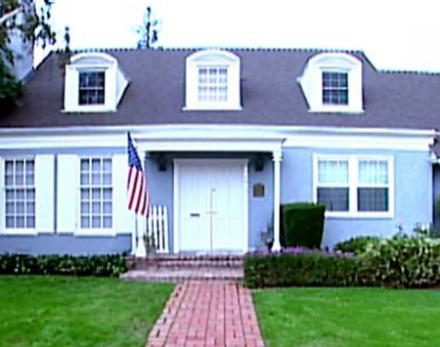Real estate investments can be a wonderful way to create wealth and diversify an investment portfolio. This is especially true for commercial real estate investing, as it has created some of the highest income streams.
If you are a residential real estate investor who wants to know how to invest in commercial real estate, you have come to the right place. This guide will show you all you need to know about how to invest in commercial real estate.
How to Invest in Commercial Real Estate: What to Do
When asked how to invest in commercial real estate, the first answer that comes to mind is to simply practice due diligence. It doesn’t matter the niche or sector you have experience in; taking the time to research and conduct due diligence is essential to success.
Apart from learning the intricacies surrounding commercial investing, as an individual investor, you must also comprehend the commercial property and office building market and how it differs from residential property investments. Nonetheless, here are a few tips on how to invest in commercial real estate.
Reserve Cost Contingencies
Cost contingencies are basically savings set to cover any unforeseen expenses associated with purchasing the property. You can use this part of the budget to cover lost income due to renovations, early vacancies, and many other upfront costs.
For instance, it might be necessary to rezone the property or hire a new property management company. These expenses are typically incurred before the property can generate stable cash flow.
As a commercial real estate investor and property owner, you need to add these contingencies into your budget to ensure you have enough financial leverage to fund these expenses. Generally, a commercial real estate investor will have a contingency budget of 5 to 15%.
Cash on Cash
This is a metric given to real estate investors to show the rate of return on investment on their properties or office buildings. This is generally used by commercial real estate investors that rely on financing like commercial real estate loans to buy properties.
Discover how to build wealth with these strategies.
Utilize the Appropriate Success Metric
Learning how to invest in commercial real estate is understanding that it involves a range of calculations. It also means understanding the intricacies of real estate financing. To become a commercial real estate investor, you need to know the following formulas:
Cap Rate
This formula is used to calculate the value income-producing properties generate. Also known as capitalization rate, it provides commercial real estate investors with estimates of future cash flow or profits. Simply put, it is the ratio of net operating income to property asset value.
Net Operating Income
This formula calculates all the costs and revenue from a commercial property. Net operating income is calculated before tax and provides commercial real estate investors with an estimate of how much they can earn from their commercial real estate investment minus required operating expenses. Operating expenses generally include property management fees, insurance, utilities, janitorial fees, repairs, and property tax.
Analyze Comparables
Another tip you should note when trying to learn how to invest in commercial real estate is to analyze comparables in your desired area. Comparables or comps are metrics used to assess the price paid for recently bought properties in the area. These properties should be in a similar style, size, and location.
Taking the time to analyze comps can help you recognize the market value of a commercial property. When analyzing comps, you need to select a property where the square footage doesn’t go beyond 10% lower or higher than your evaluated commercial property. Sticking to this rule will ensure you get accurate comparables.
Know That the Commercial Real Estate Industry Is Different
The first thing you should always understand, especially as a residential real estate investor, is that commercial property is appraised differently. Unlike residential properties, commercial property income is generally linked to the available square footage.
Moreover, commercial property leases last much longer than residential ones. These variables help highlight why commercial real estate investors tend to have a higher earning potential.
You need to comprehend the risks as well as the rewards by first conducting your research. You should also be ready to invest a sizeable sum upfront and handle the effect economic conditions have on your investments.
Location is also an important variable, irrespective of your niche. As a commercial real estate investor, you need to pay attention to the type of tenant you get. The intended tenant and location are two variables that tightly correlate to demand.
For instance, a property created for corporate offices is bound to perform much better when placed in a metropolitan area than in a residential neighborhood.
Mistakes You Should Avoid
When you become a commercial property investor, knowing what you shouldn’t do is just as important as knowing what to do. One of the most important things you can do when learning to invest in commercial real estate is mitigate risk.
Mitigating risk can be the key to being a successful commercial real estate investor. That said, the following is a list of the most popular mistakes you need to avoid as a commercial real estate investor:
Financial Ignorance
Not understanding the intricacies of a commercial real estate deal can be quite dangerous. For one, commercial real estate deals are completely different from residential ones. As an investor learning how to invest in commercial real estate, you need to acknowledge the differences, especially when it comes to debt service coverage ratio and loan to value ratio.
Improper Valuations
One thing you should know is that every commercial space or property is distinctive, and as an investor, you need to consider the variances you might find in everyone. You could face financial ruin when you don’t account for even the minute details in the property type valuation. For this reason, you need to be completely aware of what you are purchasing and how much you pay when you go in on a commercial property investment.




